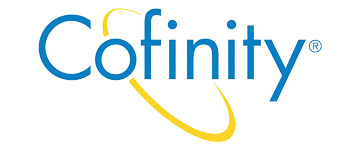Understanding Drug Detox: Your First Step Toward Recovery
Detoxification is a critical component in the journey toward recovery from drug addiction. As the initial step in any comprehensive addiction treatment plan, detox sets the foundation for long-term sobriety. At Chattanooga Detox Center, we provide a safe, comfortable, and supportive environment for individuals beginning this essential process. Our detox centers in Chattanooga, Tennessee, offer the expertise and care necessary to help you or your loved one start the path to healing the right way.
What Happens During Drug Detox in Chattanooga?
During drug detox, individuals undergo the withdrawal phase of addiction recovery under professional supervision. Withdrawal symptoms can range from mildly uncomfortable to severe and life-threatening, depending on various factors such as:
- Duration of Addiction: Longer periods of substance use can lead to more intense withdrawal symptoms.
- Substance Type: Different drugs produce different withdrawal experiences.
- Amount Consumed: Higher consumption levels can increase withdrawal severity.
- Overall Health: Physical and mental health conditions can influence withdrawal.
- Polysubstance Use: Using multiple substances can complicate the detox process.
Common withdrawal symptoms include:
- Nausea and vomiting
- Diarrhea
- Headaches
- Anxiety and depression
- Sleep disturbances
- Profuse sweating
- Tremors
- Mental fog and confusion
At Chattanooga Detox Center, our inpatient rehab level of care ensures that clients reside within our facility throughout the detox process. This residential approach offers several benefits:
- Safety from Relapse: Without access to drugs, clients are less tempted to relapse during this vulnerable time.
- 24/7 Medical Support: Our medical staff is available around the clock to manage physical symptoms and ensure comfort.
- Medication-Assisted Treatment (MAT): Some clients may benefit from medications that ease withdrawal symptoms and reduce cravings.
- Peer Support: Being surrounded by others who are also on the path to recovery fosters a sense of community and understanding.
Substances We Detox From
Our detox center assists clients in detoxing from a wide range of substances, including both illegal drugs and prescription medications. Since many individuals use more than one substance, our programs are equipped to handle the complexities of polysubstance dependency. Our primary focus is to help clients safely manage their withdrawal symptoms, begin the recovery process, reduce the risk of relapse, and provide support during the early stages of treatment.
Opioid Detox and Withdrawal Timeline
Opioid addiction is a significant challenge due to the intense physical and psychological dependency it creates. Withdrawal symptoms can be uncomfortable and, in some cases, dangerous. Under professional supervision, the detox process becomes safer and more manageable.
Typical opioid detox timeline:
First 8 to 24 Hours
- Onset of Symptoms: Withdrawal symptoms begin, often starting mildly.
- Initial Discomfort: Feelings of restlessness, anxiety, and agitation may occur.
- Physical Symptoms: Runny nose, sweating, and muscle aches can begin.
Days 1 to 3
- Peak Symptoms: Withdrawal symptoms intensify during this period.
- Physical Discomfort: Nausea, vomiting, diarrhea, and abdominal cramps are common.
- Sleep Disturbances: Insomnia and fatigue may occur.
- Vital Signs: Elevated heart rate and blood pressure are possible.
Days 4 to 7
- Tapering Symptoms: Physical symptoms begin to lessen.
- Emotional Challenges: Anxiety, depression, and cravings may persist.
- Ongoing Support: Continued medical and psychological support is essential.
Note: Some individuals may experience prolonged withdrawal symptoms, known as Post-Acute Withdrawal Syndrome (PAWS), which can last for weeks or months. Professional care helps manage these symptoms effectively.
Call (423) 455-9887
Insurance Can Cover Up To 100%
We Accept Most Insurance. Please Note We Are Not Affiliated or Endorsed By Insurance Companies.
Benzodiazepine Detox and Withdrawal Timeline
Benzodiazepines (benzos) are commonly prescribed for anxiety and sleep disorders but can lead to dependency even when taken as prescribed. Withdrawal from benzos should always be conducted under medical supervision due to the risk of severe symptoms.
Typical benzo detox timeline:
First 1 to 4 Days
- Onset of Symptoms: Symptoms may begin within 24 hours for short-acting benzos or up to several days for long-acting ones.
- Initial Symptoms: Anxiety, insomnia, and restlessness are common.
- Physical Discomfort: Headaches, sweating, and tremors may occur.
Days 5 to 14
- Peak Symptoms: Withdrawal symptoms reach their peak intensity.
- Severe Symptoms: Risk of seizures, hallucinations, and psychosis increases.
- Medical Monitoring: Close supervision is critical during this phase.
Weeks 2 to 4 and Beyond
- Tapering Symptoms: Symptoms gradually decrease but may linger.
- Emotional Challenges: Continued anxiety, mood swings, and depression may persist.
- Long-Term Care: Ongoing therapy and support are beneficial.
Important: Abruptly stopping benzodiazepines can be dangerous. A gradual tapering plan under medical guidance is the safest approach.
What Happens After Detox Ends?
Detox is a vital first step, but it’s only the beginning of the recovery journey. After detoxification, treatment focuses on addressing the underlying causes of addiction and developing strategies for maintaining long-term sobriety.
Post-detox options include:
- Inpatient Rehabilitation: Continuing residential care to deepen therapeutic work without outside distractions.
- Outpatient Programs: Flexible programs like Partial Hospitalization (PHP) or Intensive Outpatient (IOP) offer structured support while allowing clients to return home.
- Aftercare Planning: Developing a personalized plan that may include counseling, support groups, and ongoing medical care.
- Sober Living Environments: Providing a supportive, substance-free living situation to reinforce recovery efforts.
Our team works closely with each client to determine the best path forward, ensuring a continuum of care that supports lasting recovery.
The Risks of Detoxing at Home
Attempting to detox from drugs at home is not recommended due to several significant risks:
- Medical Emergencies: Severe withdrawal symptoms can become life-threatening without professional supervision.
- High Relapse Rates: Easy access to substances increases the likelihood of relapse during the vulnerable withdrawal phase.
- Overdose Risk: Resuming drug use after a period of abstinence can lead to consuming amounts that the body can no longer tolerate, increasing the risk of overdose.
- Lack of Support: Without medical and emotional support, individuals may struggle to cope with symptoms and cravings.
Seeking professional help ensures safety, comfort, and a higher chance of successful, long-term recovery.








 Gupta Brings Over A Decade Of Experience To Chattanooga Detox Center. Dr. Gupta Specializes In Treating Adults With Substance Use And Psychiatric Disorders. His Extensive Clinical Experience Includes Medication-Assisted Treatment, Medical-Surgical Consultation And Psychiatric Stabilization In Acute Settings. Dr. Gupta Completed His General Psychiatry Residency At The University Of Connecticut Followed By A Fellowship In Addiction Psychiatry At Emory University. He Is Double Board-Certified In Both Of These Specialties. Dr. Gupta Is Passionate About His Work In Substance Abuse And Is An Advocate For Reducing The Stigma Surrounding Mental Illness.
Gupta Brings Over A Decade Of Experience To Chattanooga Detox Center. Dr. Gupta Specializes In Treating Adults With Substance Use And Psychiatric Disorders. His Extensive Clinical Experience Includes Medication-Assisted Treatment, Medical-Surgical Consultation And Psychiatric Stabilization In Acute Settings. Dr. Gupta Completed His General Psychiatry Residency At The University Of Connecticut Followed By A Fellowship In Addiction Psychiatry At Emory University. He Is Double Board-Certified In Both Of These Specialties. Dr. Gupta Is Passionate About His Work In Substance Abuse And Is An Advocate For Reducing The Stigma Surrounding Mental Illness. President Alec Pagliarulo has spent his entire career working in the addiction and mental health community. He has worked in various roles, including benefits analyst, admissions coordinator, and business development specialist. Alec is passionate about providing the best possible care to individuals struggling to overcome addiction. He aims to create positive recovery experiences, including programs rooted in integrity that pave a path for long-term growth.
President Alec Pagliarulo has spent his entire career working in the addiction and mental health community. He has worked in various roles, including benefits analyst, admissions coordinator, and business development specialist. Alec is passionate about providing the best possible care to individuals struggling to overcome addiction. He aims to create positive recovery experiences, including programs rooted in integrity that pave a path for long-term growth. Carter is a successful real estate and private equity investor. Prior to founding Chattanooga Detox Center, Carter worked in insurance brokerage in New York City and as a real estate private equity acquisitions specialist in Atlanta. He completed his undergraduate degree at Washington & Lee University and has an MBA from the UNC Keenan-Flagler Business School.
Carter is a successful real estate and private equity investor. Prior to founding Chattanooga Detox Center, Carter worked in insurance brokerage in New York City and as a real estate private equity acquisitions specialist in Atlanta. He completed his undergraduate degree at Washington & Lee University and has an MBA from the UNC Keenan-Flagler Business School.